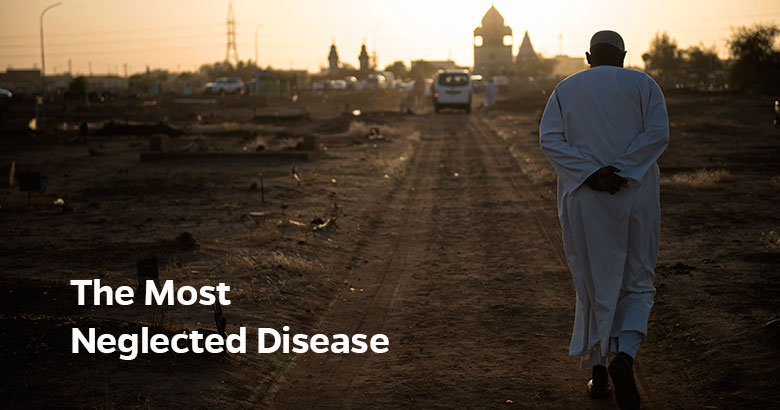Sudan
See the following -
Africa's Mineral Wealth Hardly Denting Poverty Levels, Says World Bank
Report finds discovery of oil and mineral resources doing little to improve prospects for poor people, whose lot may even worsen Read More »
- Login to post comments
Developing Nations Improving Health Communication Through the Use of DHIS2 (Part 1)
 DHIS2 implementations are spreading steadily among national health services in developing countries as well as among international non-governmental organizations (NGOs) working to improving health in the developing world through the use of health information technology. As an open source solution, DHIS2 offers developing countries the advantage of adopting a cost-effective and flexible solution for aggregate statistical data collection, validation, analysis, management, and presentation as well as for data sharing between healthcare professionals and facilities. Organizations and individuals who work with humanitarian software solutions will need to know what DHIS2 is, how it works, and how it might be implemented by national health services and other health-related projects across the globe...
DHIS2 implementations are spreading steadily among national health services in developing countries as well as among international non-governmental organizations (NGOs) working to improving health in the developing world through the use of health information technology. As an open source solution, DHIS2 offers developing countries the advantage of adopting a cost-effective and flexible solution for aggregate statistical data collection, validation, analysis, management, and presentation as well as for data sharing between healthcare professionals and facilities. Organizations and individuals who work with humanitarian software solutions will need to know what DHIS2 is, how it works, and how it might be implemented by national health services and other health-related projects across the globe...
- Login to post comments
DHIS2 - Transforming Health IT Standards in the Developing World (Part 2)
 Rwanda's 2012 implementation of DHIS2 is one of at least 16 completed national rollouts of this free and open source health data management. A total of 54 countries are deploying DHIS2 on a national scale, 30 of which are in the pilot stage or early phase in their rollouts. Since DHIS2's release in 2006, NGOs and national governments in 60 countries have deployed DHIS2 for health-related projects, including patient health monitoring, improving disease surveillance and pinpointing outbreaks, and speeding up health data access.
Rwanda's 2012 implementation of DHIS2 is one of at least 16 completed national rollouts of this free and open source health data management. A total of 54 countries are deploying DHIS2 on a national scale, 30 of which are in the pilot stage or early phase in their rollouts. Since DHIS2's release in 2006, NGOs and national governments in 60 countries have deployed DHIS2 for health-related projects, including patient health monitoring, improving disease surveillance and pinpointing outbreaks, and speeding up health data access.
- Login to post comments
DIY Lab Technique to Revolutionise Training for Neuroscientists
 A team of international researchers have come up with an inexpensive way to self-manufacture lab equipment, which could revolutionise the way neuroscientists across the world are trained. In a study published in the open access journal PLOS Biology, Dr Tom Baden from Sussex Neuroscience and André Maia Chagas, from the University of Tübingen, have devised a new imaging and microscope system called “FlyPi”. The equipment needed for modern neuroscience experiments can cost tens or even hundreds of thousands of pounds, which often means only institutions in rich countries can undertake top-level research and scientific training...
A team of international researchers have come up with an inexpensive way to self-manufacture lab equipment, which could revolutionise the way neuroscientists across the world are trained. In a study published in the open access journal PLOS Biology, Dr Tom Baden from Sussex Neuroscience and André Maia Chagas, from the University of Tübingen, have devised a new imaging and microscope system called “FlyPi”. The equipment needed for modern neuroscience experiments can cost tens or even hundreds of thousands of pounds, which often means only institutions in rich countries can undertake top-level research and scientific training...
- Login to post comments
How A $100 3D-Printed Arm Is Saving The Children Of Sudan
A company called Not Impossible Labs has come up with one of the best uses for 3D printer technology we've ever heard of: printing low-cost prosthetic arms for people, mainly children, who have lost limbs in the war-torn country of Sudan. Read More »
- Login to post comments
How Project Daniel Is Crafting Prosthetic Limbs With 3D Printers
Project Daniel is a rare beacon of light in the otherwise war-torn area of South Sudan: researchers recently pioneered 3D printing as a means of building prosthetic arms for child amputees. According to the official press release, Project Daniel—which is funded by Not Impossible, LLC—opened the “world’s first 3D-printing prosthetic lab and training facility” in the Nuba Mountain region of Sudan.
- Login to post comments
Low tech adaptations for a community communications System
FrontlineSMS was recently featured on the ‘Lets Them Talk‘ blog. In the post, Helena Puig Larrauri (@helenapuigl) highlights how the SUDIA community are using technology to bridge the information gap for communities living along the Blue Nile in Sudan. They are using FrontlineSMS to disseminate information about livelihoods and sustainability directly to communities. Read More »
- Login to post comments
Mycetoma: The Untold Global Health Story of 2015
 “It is unjust that people don’t care about this disease.” Writer Amy Maxmen’s words keep surfacing in my thoughts. She said this after her trip to Sudan to report on mycetoma, a flesh-eating, bone-destroying disease that spreads misery across 23 countries from Mexico to India. Although it’s exacted a horrific toll on human lives for centuries, very little is known about its prevalence or etiology. Bacterial or fungal in origin, the disease starts with a skin infection that over time grotesquely swells feet and other appendages. It erupts in painful lesions on the skin even as it destroys the bones within. Often the only treatment is amputation. Sometimes the disease proves fatal...
“It is unjust that people don’t care about this disease.” Writer Amy Maxmen’s words keep surfacing in my thoughts. She said this after her trip to Sudan to report on mycetoma, a flesh-eating, bone-destroying disease that spreads misery across 23 countries from Mexico to India. Although it’s exacted a horrific toll on human lives for centuries, very little is known about its prevalence or etiology. Bacterial or fungal in origin, the disease starts with a skin infection that over time grotesquely swells feet and other appendages. It erupts in painful lesions on the skin even as it destroys the bones within. Often the only treatment is amputation. Sometimes the disease proves fatal...
- Login to post comments
Not Impossible Labs’ Award-Winning ‘Project Daniel’ Celebrates One-Year Anniversary
Not Impossible Labs’ Award-Winning ‘Project Daniel’ Celebrates One-Year Anniversary...Ebeling remarks, “The thing I'm most excited about is this has awoken the realization that helping people gain access to solutions is not limited to big corporations and institutions. If we can continue to show people that technology is not this foreign, inaccessible thing, but is something that is very real and can help individuals in their worlds, then Project Daniel is just the first fuse lit for the many ideas to come.”
- Login to post comments
Open Access Advocacy at Sudan Higher Education Institutions National Level (SudanHENL)
The SudanHENL case study describes the open access advocacy campaign involving three higher educational institutions in Sudan that decided to collectively partner in raising open access awareness in their respective institutions. Read More »
- Login to post comments
The Opposite of Martin Shkreli: Drug Development Without Profit
 From inside the van, Nathalie Strub Wourgaft watches the scene unfold in silence. She looks tired, and a little tense. Wourgaft is the medical director of a Geneva-based organization devoted to developing treatments for syndromes that afflict the poor, called the Drugs for Neglected Diseases initiative (DNDi), and she is in Sudan for just 3 days to scope out the setting for a clinical trial that will be the first of its kind. By May, Wourgaft and a Sudanese surgeon, Ahmed Fahal, hope to test a new drug for a potentially lethal, flesh-eating fungal infection called mycetoma...
From inside the van, Nathalie Strub Wourgaft watches the scene unfold in silence. She looks tired, and a little tense. Wourgaft is the medical director of a Geneva-based organization devoted to developing treatments for syndromes that afflict the poor, called the Drugs for Neglected Diseases initiative (DNDi), and she is in Sudan for just 3 days to scope out the setting for a clinical trial that will be the first of its kind. By May, Wourgaft and a Sudanese surgeon, Ahmed Fahal, hope to test a new drug for a potentially lethal, flesh-eating fungal infection called mycetoma...
- Login to post comments
Tübingen neuroscientists develop inexpensive, self-manufactured lab equipment
 Laboratory equipment is one of the largest cost factors in neuroscience. However, many experiments can be performed with good results using self-assembled setups with 3-D printed components and self-programmed electronics. The inexpensive system called “FlyPi” developed by André Maia Chagas and Tom Baden allows for many standard lab processes including light and fluorescence microscopy, optogenetics, thermogenetics, and behavioural studies in small animals (e.g. round-worms, fruit flies, zebrafish larvae)...
Laboratory equipment is one of the largest cost factors in neuroscience. However, many experiments can be performed with good results using self-assembled setups with 3-D printed components and self-programmed electronics. The inexpensive system called “FlyPi” developed by André Maia Chagas and Tom Baden allows for many standard lab processes including light and fluorescence microscopy, optogenetics, thermogenetics, and behavioural studies in small animals (e.g. round-worms, fruit flies, zebrafish larvae)...
- Login to post comments
We’re Not No. 1! We’re Not No. 1!
...a major new ranking of livability in 132 countries puts the United States in a sobering 16th place. We underperform because our economic and military strengths don’t translate into well-being for the average citizen. In the Social Progress Index, the United States excels in access to advanced education but ranks 70th in health, 69th in ecosystem sustainability, 39th in basic education, 34th in access to water and sanitation and 31st in personal safety...
- Login to post comments
Why Ebola Is So Dangerous
The World Health Organization (WHO) says it is taking "very seriously" the current outbreak of the Ebola virus in West Africa. Out of 122 cases recorded in Guinea so far, at least 80 patients have died, with a further four deaths in Liberia...
- Login to post comments
With Ingenuity And A 3D Printer, Group Changes Lives
Ebeling had read a magazine article a few months earlier about the 16-year-old, whose hands and forearms had been blown off two years ago during an airstrike launched by the Sudanese government. The boy's plight resonated with Ebeling, who tracked down the remote hospital where Daniel had received treatment.
- Login to post comments